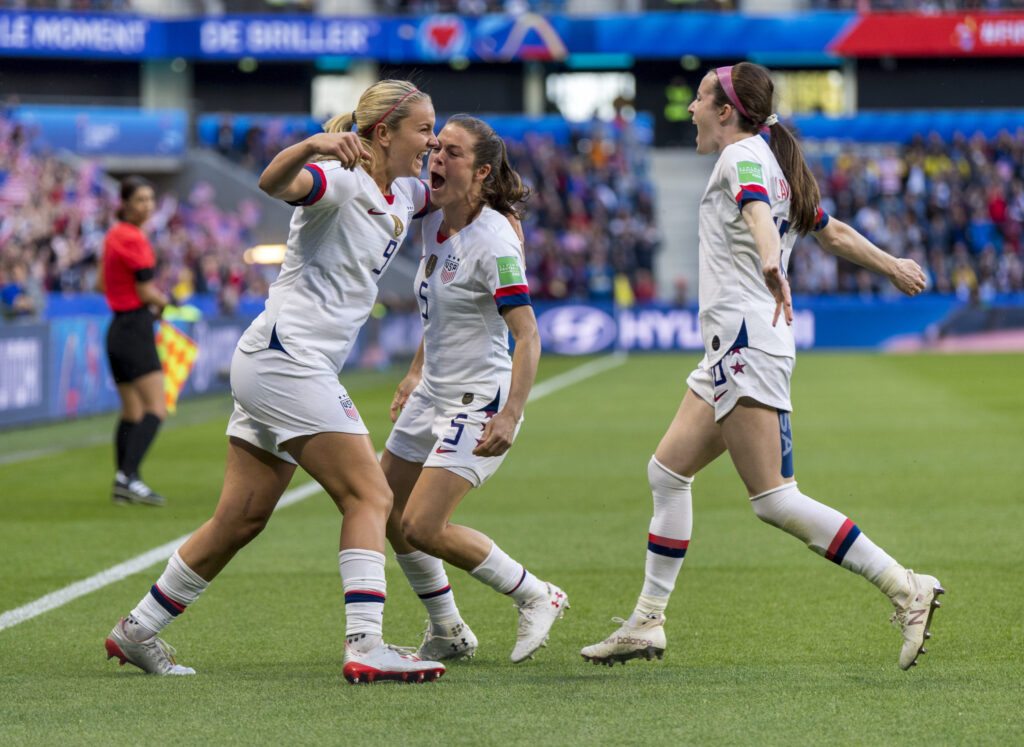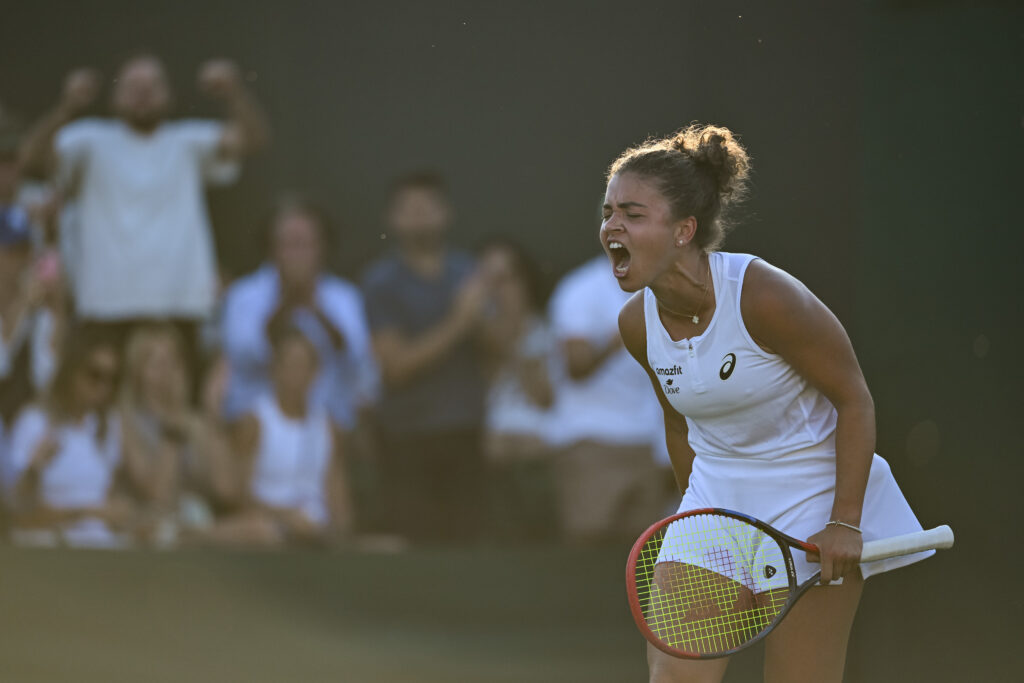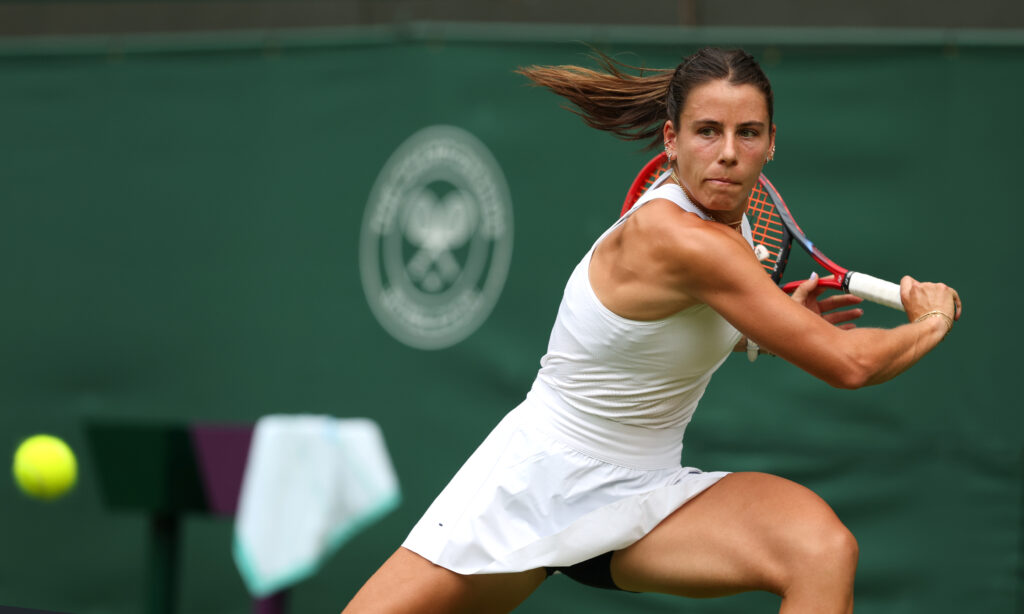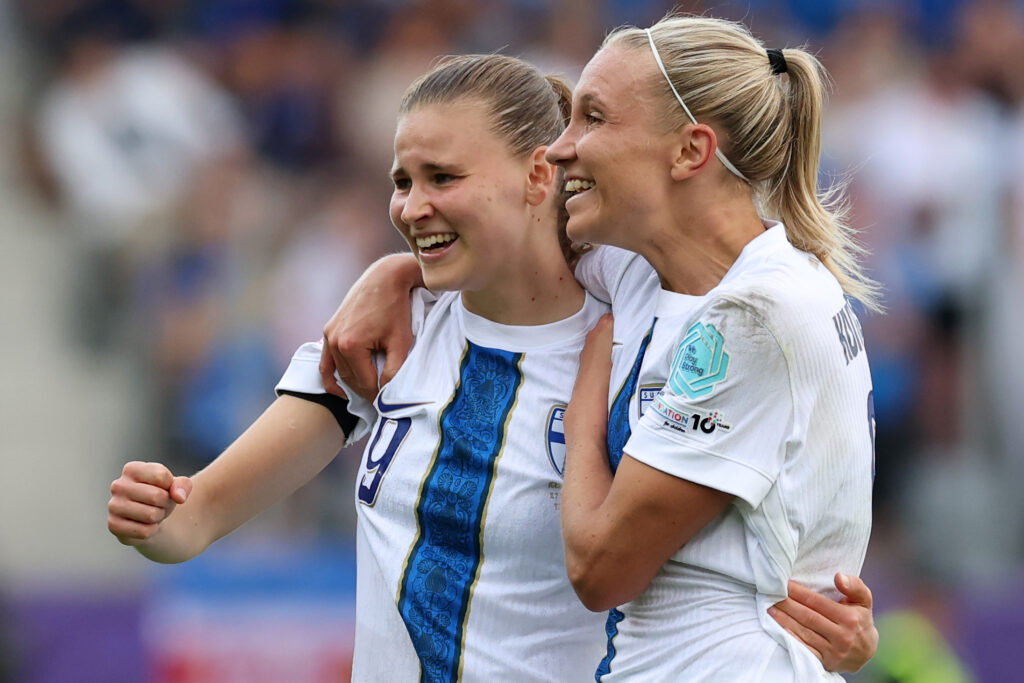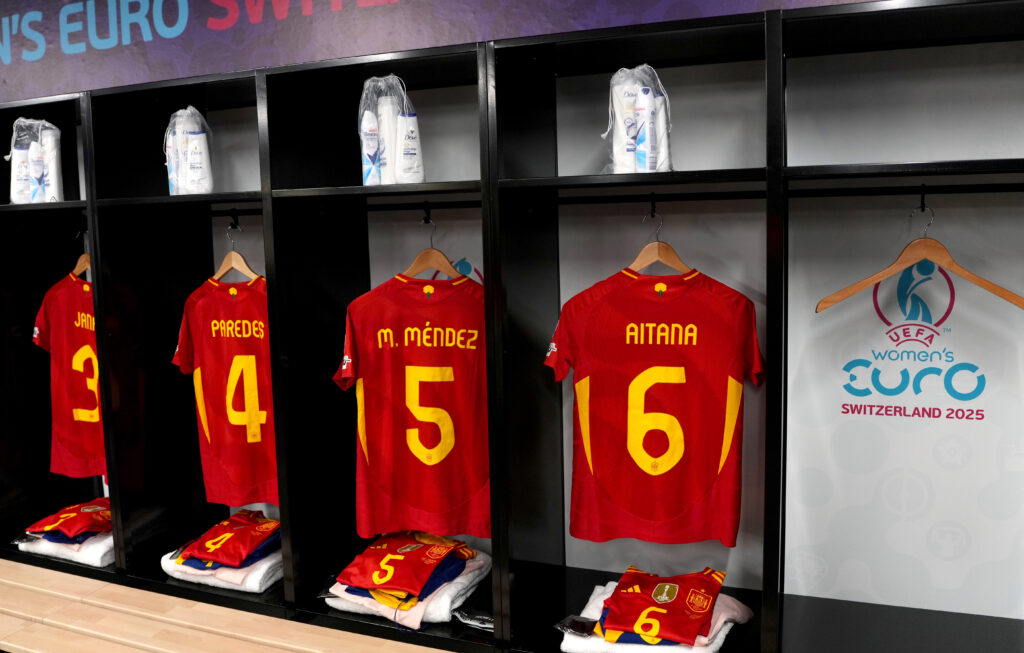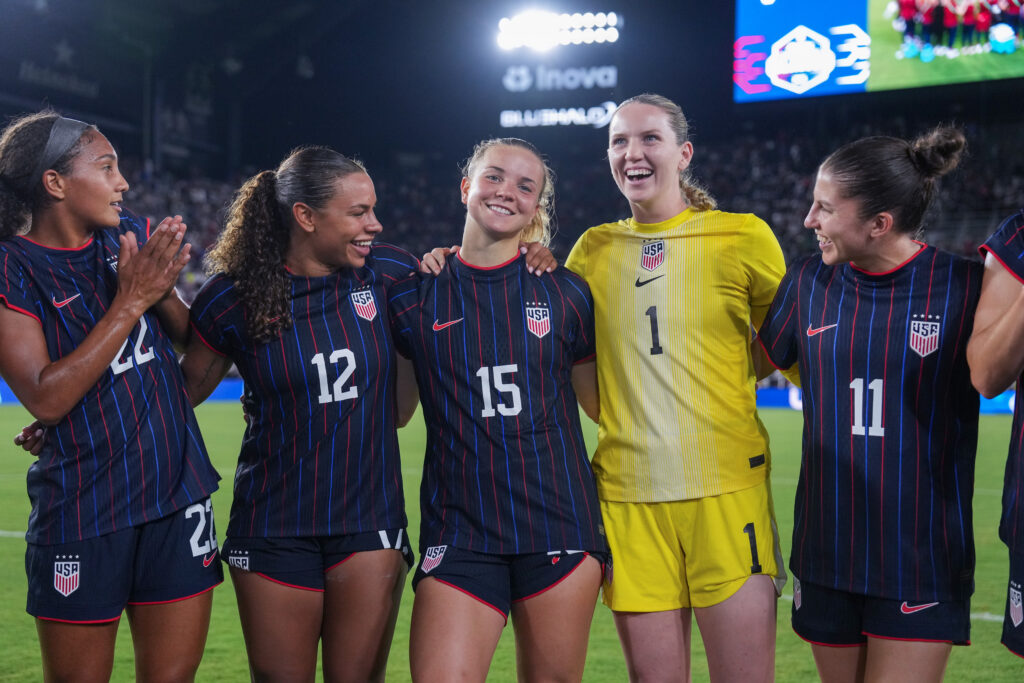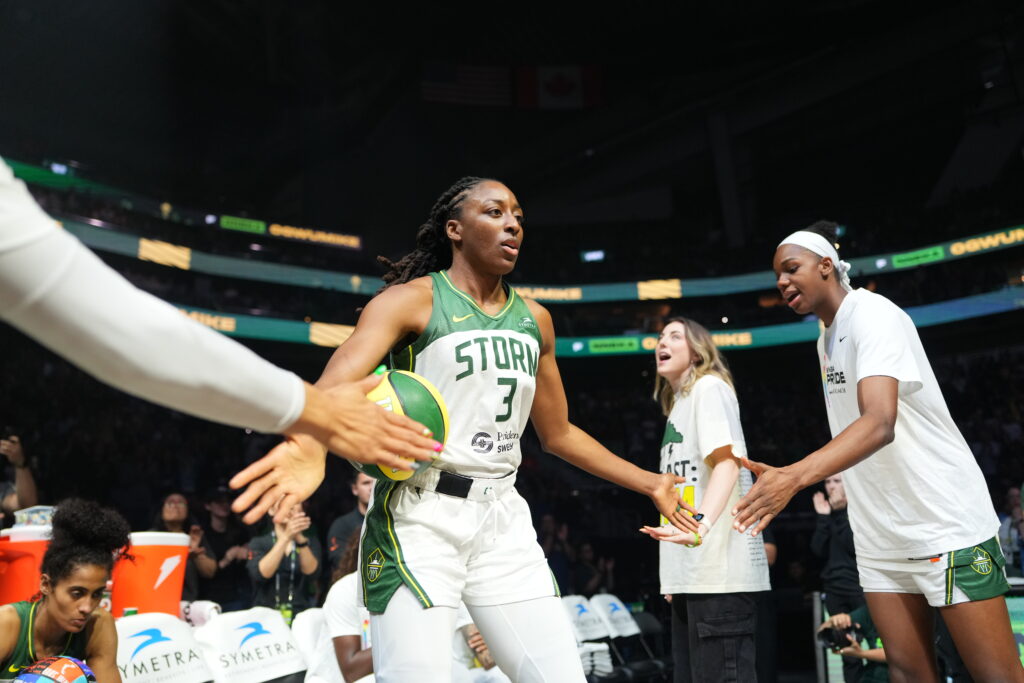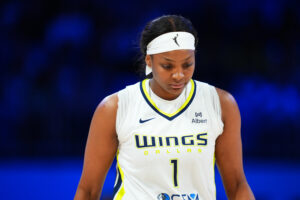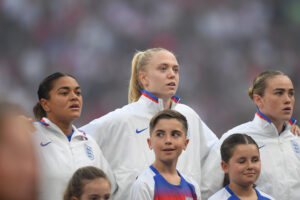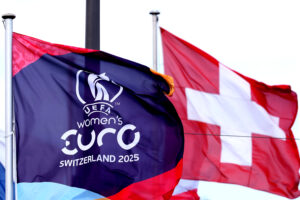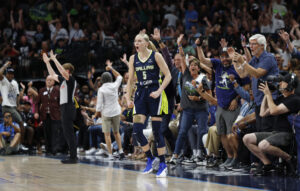Kelley O’Hara plays for both Utah Royals FC and the US women’s national team. A two-time World Cup winner, O’Hara is a graduate of Stanford University, where she won the 2009 Hermann Trophy as the best player in the country. Just Women’s Sports caught up with O’Hara to talk about Olympics prep, coming back from injury, and her ill-fated attempt to see if she could walk away from soccer.
The Tokyo Olympics are only months away. How would you describe the team’s mindset?
I don’t know if the casual fan realizes that the World Cup and the Olympics are always back-to-back summers for women. And no team has ever won a World Cup and then gone on to win an Olympic Gold Medal. In 2015, we won the World Cup, and in 2016 we lost in the quarterfinals of the Olympics in Rio, which is the worst we’ve ever done in a major tournament. So right now the question we’re asking ourselves is, can we do this thing that no one has done before? We want to prove to ourselves that we can.
Given how successful the USWNT has been, do you need that extra bit of motivation in terms of trying to make history?
We always want to win, no matter the circumstances. This is just the next thing. It’s the next hurdle we want to get over, and it’s a pretty big hurdle. There’s a reason no one has done it before. You have to go from the high of winning a World Cup to starting all over again, knowing you have to make all the mental and physical and social sacrifices a second time. Before this, we wanted to prove that we could win back-to-back World Cups. And we did that, and it was incredible. But now we have to see if we can lock in and accomplish this next goal.
You especially looked sharped in the last World Cup.
Thank you.
It must be such a confidence thing, right?
It for sure is, and I knew that going in. In tournaments past, I haven’t been confident, but I knew that it was going to be such a mental battle. I knew that I couldn’t necessarily control all the physical factors, but I could control my mental game. Even when I was rehabbing and conservatively coming back from having a stress reaction, I could still focus on the mental piece. I was like, I can’t be on the field right now, but I’m going to visualize playing in a game. And I did that leading up to the World Cup more than I’ve ever done before. And I think that was a big reason why I was able to feel comfortable and confident, even though my lead-up to the World Cup was the complete opposite of what I had thought it would be.
Can you talk about your experiences coming back from injury? What have they taught you?
The thing is that I didn’t really have to deal with any serious injuries during my amateur career. I tore my meniscus my senior year of high school, which was the first time I had to get surgery, but I was back on the field in four weeks. Even though it was minor, I completely lost it mentality when I was told I needed surgery. I immediately went to a party in order not to think about it. And then in my professional career I had to have surgery in 2013. This was coming off of graduating in 2010, going to the 2011 World Cup and losing in the final, and then going to the 2012 Olympics and playing every minute of every game and winning a gold model. And then a year to the day after we won, I walked out of the doctor’s office having been told that I needed full ankle reconstruction.
What had you done to your ankle?
I just had rolled it so many times. And I rolled it really bad at the beginning of that season, and it just got to the point that I was rolling it every single game. It was so unstable, and on top of that, I had loose bodies in there. So every time I would go to kick, or pass, or plant, or cut — each time my ankle had pressure on it, there was something inside my ankle that was just rubbing it the wrong way. And it was through-the-roof painful. Actually getting through that injury ended up being one of the hardest things I ever had to do.
How long was that recovery?
Surgery was in August, and I probably didn’t feel 100% until the next August, but I was back on the field by January of the next year. It was a lot. I had never had to go through something like that. It’s something that’s stuck with me, because now every time I do get injured, I have this hindsight to fall back on. I know I can’t come back too soon, that I have to take my time and do things the right way. I’ve had to deal with a handful of injuries since then, and it’s never easy. It’s a total mental and emotional hurdle.
What made that recovery especially difficult?
It’s the questions you ask yourself. It’s like, am I going to be back to where I was before? Am I going to be good enough? And it made me question if I even really wanted to continue to play soccer. It made me re-evaluate how I looked at my career, how I looked at myself as a person. I was like, you know, I could just be a normal person, work out on the weekends.
You were going to work out just on the weekends?
Well, I mean, you know. Whenever I could. [Laughs.] After they told me I needed surgery, I went for a jog in Prospect Park in Brooklyn. I wanted to prove to myself that I could just work out leisurely, and that wasn’t the case. I had to do a little soul-searching and ask myself what I wanted to get out of this whole journey. And I realized I wasn’t done, and that I still had aspirations I wanted to chase.

